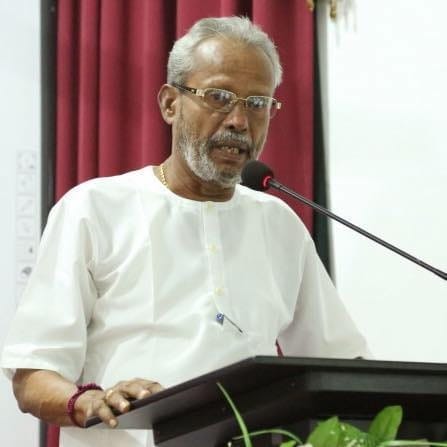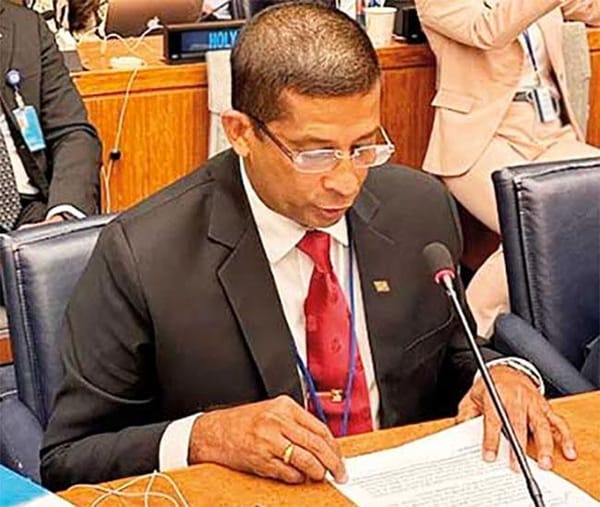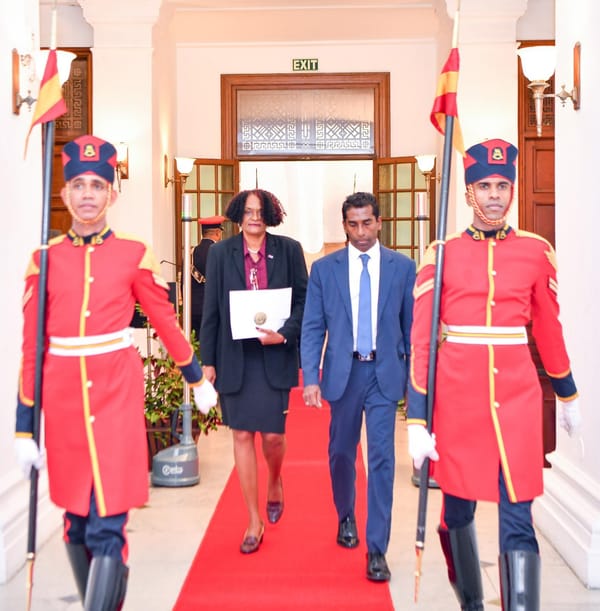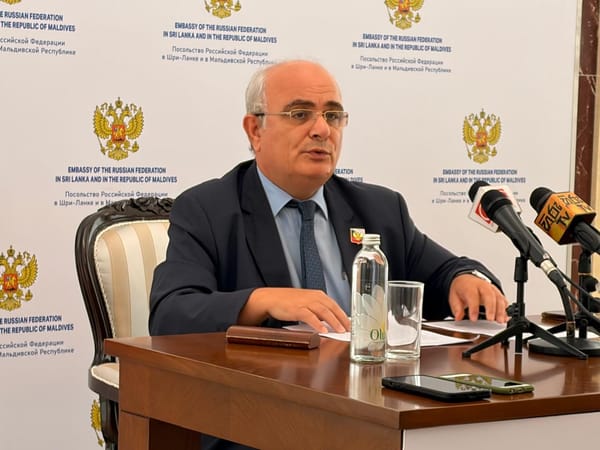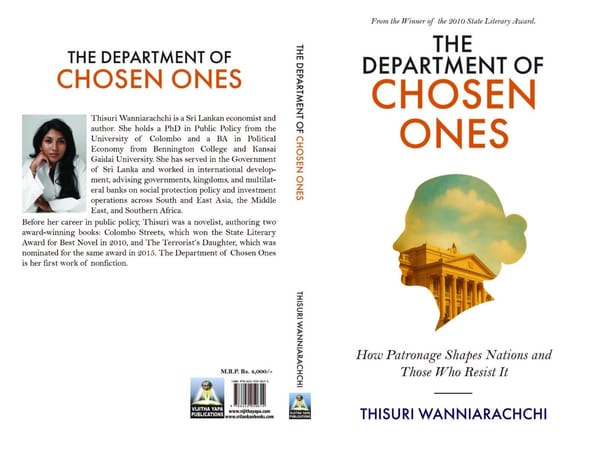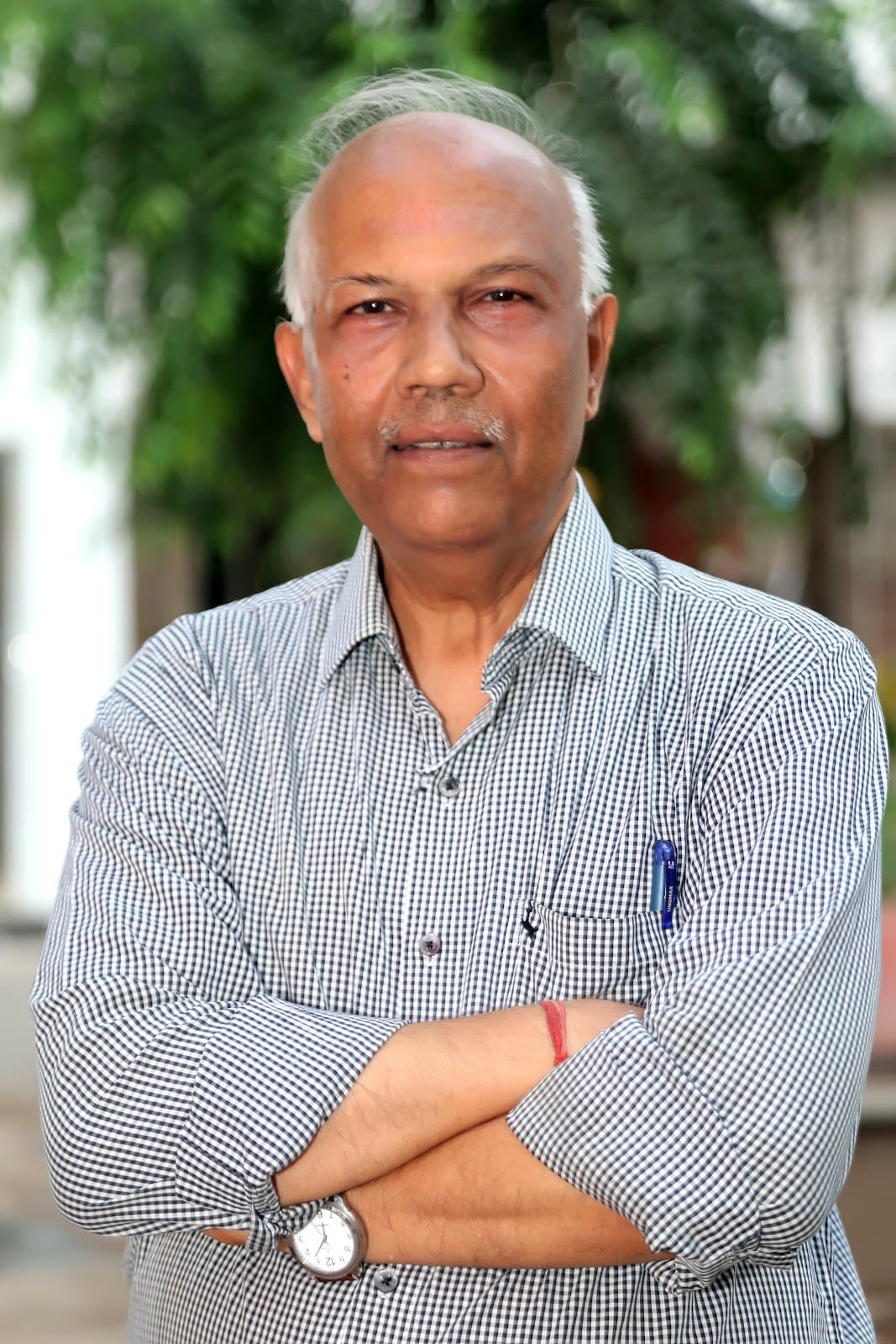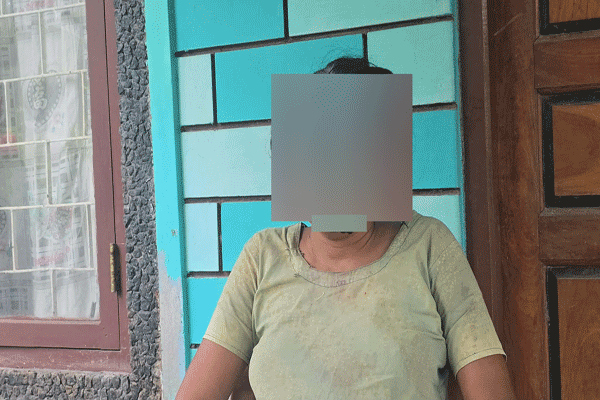Acting leader of the Ilankai Tamil Arasu Katchi (ITAK), C.V.K. Sivagnanam, has voiced frustration over India’s repeated calls for Tamil political unity, insisting that all major Tamil parties — except for the Tamil National People’s Front (TNPF), widely known as the Cycle Party — are already united in their demand for the full implementation of the 13th Amendment to the Constitution.
Speaking to the media, Sivagnanam questioned the rationale behind New Delhi’s constant reminders.
“On the matter of implementing the 13th Amendment that already exists in the Constitution, except for the ‘Cycle Party,’ all of us are united. Then why does the Indian side keep telling us again and again: ‘Unite, unite’? They cannot say we are not united, especially knowing full well that the ‘Cycle Party’ will not come along,” he said.
Sivagnanam said that even during ITAK’s recent meeting with the Indian High Commissioner to Sri Lanka, the envoy repeatedly emphasized the need for Tamil parties to “come together.”
“The truth is, we are already united. For example, in demanding the full implementation of the 13th Amendment, we stand together. There is no such thing as perfect unanimity anywhere in the world,” he observed.
Not the Final Solution
Sivagnanam emphasized that while the 13th Amendment does not represent the ultimate solution to the Tamil national question, its implementation remains a constitutional obligation that cannot be postponed.
"We are asking that the 13th Amendment be implemented, but at the same time, we are also saying it is not our ultimate solution," he clarified. "Even now, we continue to emphasize that the 13th Amendment is not the solution for us."
However, since the amendment is already enshrined in the Constitution, the government must act without delay, he added.
India's Responsibility
The ITAK leader also reminded India of its moral and political obligations under the Indo–Sri Lanka Accord of 1987, which established the framework for the 13th Amendment and provincial devolution of power.
"Even though we say the international community must show greater concern over the Tamil issue, the primary responsibility lies with India," Sivagnanam stated. "Through the Indo–Sri Lanka Accord, that responsibility is clearly with India. We have placed great trust in India."
He concluded with a direct appeal to New Delhi: "The power and strength to bring about this change rest with India. We believe in that, we expect India to act, and we urge India to act."
The 13th Amendment, introduced following the Indo-Sri Lanka Accord, provides for provincial councils with devolved powers. However, its full implementation has remained contentious, with successive Sri Lankan governments either reluctant or unable to devolve all promised powers to the provinces.

